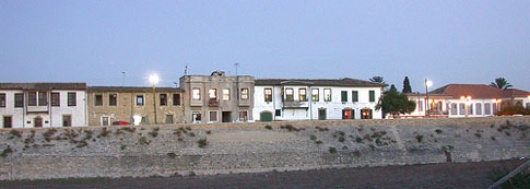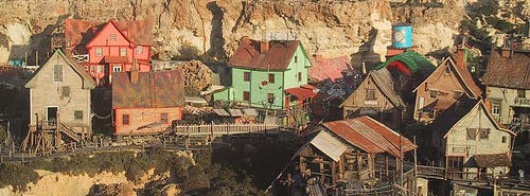Liechtenstein: a paradise’s light is dimming
Published on
Translation by:
Erin WoycikLiechtenstein, the geographical heart of the EU, has 35,000 inhabitants, 70,000 foundations and 110,000 million euros deposited in bank accounts whose owners are anonymous. All this leaves a bad taste in the European mouth
Peer Steinbrück, head of the German Economics and Treasury portfolio, has been urging the European commission ‘to harden sanctions against tax evasion and economic paradises’ since February 2008. That's when the largest case of tax evasion in Germany’s history was uncovered in the tiny principality of Liechtenstein, whose prince is an Austrian national, is under Swiss protection and shares the same currency, the Swiss Franc. A list of European tycoons was discovered, mainly Germans, who used coded accounts to hide money that was not declared to the treasury. However it was also discovered that the Spanish terrorist group ETA had secret accounts in the territory.
Nevertheless, it’s not something that has caught ordinary citizens by surprise; they are resigned to seeing the existence of sovereign territories on the edges of their borders where the rich people of Europe can go to live without paying taxes, or where they can open secret accounts that are impossible to control. Some cases, like that of Switzerland, the true Trojan horse of tax dumping in Europe, are accepted with some difficulty by public opinion. In the pages of the Financial Times on April 10 2007, experts Haig Simonian and Nikki Tait denounced the fact that this transalpine country ‘houses a third of the world’s offshore wealth’; that is, capital taken from one country to another for the purpose of tax evasion, a figure that has grown every year to five billion euros, according to calculations by the Tax Justice Network NGO.
Knowing what a tax-free paradise is like
 What intrigues European citizens the most is the passivity of their political authorities when faced with these well-identified havens. The Organisation for Economic Co-operation and Development (OECD) has established a definition of what they consider a tax-free haven to be. It describes a territory in which taxes on income generated by economic activities do not exist, or which are nominal. This territory doesn’t share information with other countries, preventing the exchequer from breaking the banking secrets of individuals and businesses. It does not demand any real activity on the part of the businesses and individuals installed in the territory in question. Lastly, it suffers a seriously lack of legislative transparency. To that effect, a so-called 'black list of the world’s tax-free paradises' exists.
What intrigues European citizens the most is the passivity of their political authorities when faced with these well-identified havens. The Organisation for Economic Co-operation and Development (OECD) has established a definition of what they consider a tax-free haven to be. It describes a territory in which taxes on income generated by economic activities do not exist, or which are nominal. This territory doesn’t share information with other countries, preventing the exchequer from breaking the banking secrets of individuals and businesses. It does not demand any real activity on the part of the businesses and individuals installed in the territory in question. Lastly, it suffers a seriously lack of legislative transparency. To that effect, a so-called 'black list of the world’s tax-free paradises' exists.

 EU members and fiscal paradises Luxembourg, Cyprus and Malta (Photos: Wolfgang Staudt/ MikiAnn/ Elkab/ Flickr)
EU members and fiscal paradises Luxembourg, Cyprus and Malta (Photos: Wolfgang Staudt/ MikiAnn/ Elkab/ Flickr)
Nevertheless, in 2001 the USA succeeded in removing those countries considered tax-free havens from this black list, which were willing to collaborate in an exchange of information with third parties. This is the case of Switzerland, Luxemburg, Malta and Cyprus, the last three being full members of the EU.
Map of tax-free havens in Europe
Click on the icons to learn about the tax-free paradises of Europe
The European community market prohibits restrictions on the movement of capital to third countries, thus guaranteeing the survival of those such places. There is no benefit for an EC member country to issue an exception to avoid the movement of capital to tax-free havens, since this would provoke a leak of capital to other countries which can operate with offshore territories. Only the political will of the EU can put effective legislation in place, to end the attraction to European tax-free paradises and fiscal dumping.
Translated from Liechtenstein: opaca es su luz paradisíaca



